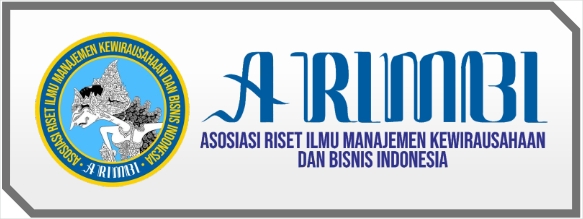Strategi Manajemen Kelas untuk Meningkatkan Prestasi Belajar Siswa
DOI:
https://doi.org/10.37832/manivest.v1i2.81Keywords:
classroom management, learning achievement, students, teacher competence, classroom layout, parents' role, social, culture.Abstract
Classroom management is a strategic approach that plays a central role in improving student learning achievement in educational settings. The main objective of this study was to investigate the effectiveness of classroom management to improve student learning outcomes. This research adopts a type of field research with a qualitative naturalistic approach, which was chosen based on the consideration that the focus of the research is on data that is able to provide a picture and painting of complex social realities into concreteness. The main source of information and data in this study involved interviews with homeroom teachers, school principals and students. The results show that every decision and strategy taken by teachers not only creates a physical space in the classroom, but more deeply, forms the basis of character and understanding. In a well-managed classroom, the expected conditions are created. The teacher serves not only as a leader, but also as a harmonizer who creates harmony among the diverse personalities and talents of students. Through wisdom and sensitivity to classroom dynamics, teachers are able to create an environment that fosters a sense of security, curiosity and passion for learning. Effective classroom management gives each student the opportunity to develop according to his or her potential. They are not only invited to participate, but also to collaborate and immerse themselves in the learning process. In a well-organized classroom setting, chaos can turn into cooperation, challenges into opportunities for growth, and uncertainty into confidence in one's abilities.
References
Adeyemo, S. A. (2012). The Relationship Between Effective Classroom Management and Students’ Academic Achievement. European Journal of Educational Studies, 4(3), 367-381.
Akmal, D. Kurniawan, D. Darmawan & A. Wardani. (2015). Manajemen Pendidikan. IntiPresindo Pustaka, Bandung.
Berger, J. L., & C. Girardet. (2021). Vocational Teachers’ Classroom Management Style: the role of motivation to teach and sense of responsibility. European Journal of Teacher Education, 44(2), 200-216.
Buchari, A. (2018). Peran Guru dalam Pengelolaan Pembelajaran. Jurnal Ilmiah Iqra', 12(2), 106-124.
Chandra, R. (2015). Classroom Management for Effective Teaching. International Journal of Education and Psychological Research, 4(4), 13-15.
Darmawan, D. (2012). Manajemen Informasi. Metromedia, Surabaya.
Darmawan, D. (2014). Pengaruh Kompetensi dan Semangat Kerja terhadap Prestasi Kerja Guru. Jurnal Ilmiah Manajemen Pendidikan Indonesia, 1(1), 1-14.
Darmawan, D., M. Hariani, E. A. Sinambela. (2018). Dasar Dasar Manajemen Sumber Daya Manusia. Metromedia, Surabaya.
Darmawan, D., S. Arifin, & A. R. Putra. (2018). Teknik Komunikasi. Metromedia, Surabaya.
Darmawan, D. (2019). Pengantar Manajemen. Revka Prima Media. Surabaya.
Darmawan, D. et al. (2021). Bunga Rampai Manajemen Terapan. LPPM Unsuri Surabaya.
Darmawan, D., F. Issalillah., E. Retnowati., & D. R. Mataputun. (2021). Peranan Lingkungan Sekolah dan Kemampuan Berkomunikasi Guru terhadap Motivasi Belajar Siswa. Jurnal Simki Pedagogia, 4(1), 11-23.
Darmawan, D. & R. Mardikaningsih. (2022). Hubungan Kecerdasan Emosional dan Hasil Belajar dengan Kualitas Komunikasi Mahasiswa Fakultas Ekonomi. ARBITRASE: Journal of Economics and Accounting, 3(1), 45-49.
Emmer, E. T., C.M. Evertson, & L.M. Anderson. (1980). Effective Classroom Management at the Beginning of the School Year. The Elementary School Journal, 80(5), 219-231.
Eskrootchi, R. & G. R. Oskrochi. (2010). A Study of The Efficacy of Project-Based Learning Integrated with Computer-Based Simulation-STELLA. Journal of Educational Technology & Society, 13(1), 236-245.
Freiberg, H. J. (2013). Classroom Management and Student Achievement. International Guide to Student Achievement, 16(2), 228-230.
Herman, K. C., W. M. Reinke, N. Dong, & C. P. Bradshaw. (2022). Can Effective Classroom Behavior Management Increase Student Achievement in Middle School? Findings from a group randomized trial. Journal of Educational Psychology, 114(1), 144.
Hutomo, S., D. Akhmal, D. Darmawan, & Y. Yuliana. (2012). Dasar-Dasar Evaluasi Pendidikan. Addar Press, Jakarta.
Kurniawan, Y. (2022). Efforts to Improve Student Achievement Index Through Learning Motivation and Pedagogical Competence of Lecturers. Studi Ilmu Sosial Indonesia, 2(2), 29-36.
Lembong, D., S. Hutomo, & D. Darmawan. (2015). Komunikasi Pendidikan. IntiPresindo Pustaka, Bandung.
Mardikaningsih, R. (2014a). Faktor-Faktor yang memengaruhi Prestasi Belajar Siswa. Jurnal Ilmu Pendidikan, 8(1), 13-24.
Mardikaningsih, R. (2014b). Metode Pembelajaran dan Variasi Penerapannya. Jurnal Ilmiah Manajemen Pendidikan Indonesia, 1(1), 43-54.
Mardikaningsih, R. & M. Hariani. (2016). Peningkatan Hasil Belajar Siswa Dengan Kontribusi dari Kompetensi Kepribadian Guru serta Kreativitas Siswa. Jurnal Ilmiah Manajemen Pendidikan Indonesia, 3(1), 1-12.
Mardikaningsih, R., E. A. Sinambela & V. Mendrika. (2022). Peran Motivasi Kerja, Kompetensi, dan Profesionalisme Terhadap Kinerja Guru. Ekonomi, Keuangan, Investasi dan Syariah (EKUITAS), 4(1), 250-255.
Marzano, R. J., J. S. Marzano, & D. J. Pickering. (2003). Classroom Management That Works: Research-Based Strategies for Every Teacher. ASCD.
Minsih, M. (2018). Peran Guru Dalam Pengelolaan Kelas. Profesi Pendidikan Dasar, 5(1), 20-27.
Moşteanu, N. R. (2021). Teaching And Learning Techniques for the Online Environment. How to Maintain Students’ Attention and Achieve Learning Outcomes in a Virtual Environment Using New Technology. International Journal of Innovative Research and Scientific Studies, 4(4), 278-290.
Nisar, M., I.A. Khan, & F. Khan. (2019). Relationship between Classroom Management and Students Academic Achievement. Pakistan Journal of Distance and Online Learning, 5(1), 209-220.
Nugraha, M. (2018). Manajemen Kelas Dalam Meningkatkan Proses Pembelajaran. Tarbawi: Jurnal Keilmuan Manajemen Pendidikan, 4(1), 27-44.
Ozcan, M. (2021). Factors Affecting Students’ Academic Achievement according to the Teachers’ Opinion. Education Reform Journal, 6(1), 1-18.
Pramudya, G. & R. Mardikaningsih. (2022). Peningkatan Kinerja Guru melalui Motivasi Diri, Konsep Diri dan Efikasi Diri (Studi Pada SMAN 1 Gondang Kabupaten Mojokerto). Jurnal Pendidikan, Penelitian, dan Pengabdian Masyarakat, 2(1), 1-12.
Roehrig, A. D., S. W. Duggar, L. Moats, M. Glover, & B. Mincey. (2008). When Teachers Work to Use Progress Monitoring Data to Inform Literacy Instruction: Identifying Potential Supports and Challenges. Remedial and Special Education, 29(6), 364-382.
Saraswati, R. Mardikaningsih, & T. Baskoro. (2014). Strategi dan Inovasi Pendidikan Tingkat Dasar. Bumi Aksara. Jakarta.
Yestiani, D. K., & N. Zahwa. (2020). Peran Guru dalam Pembelajaran pada Siswa Sekolah Dasar. Fondatia, 4(1), 41-47.
Zein, M. (2016). Peran Guru Dalam Pengembangan Pembelajaran. Inspiratif Pendidikan, 5(2), 274-285.
Zollers, N. J., A. K. Ramanathan, & M. Yu. (1999). The Relationship Between School Culture and Inclusion: How an Inclusive Culture Supports Inclusive Education. International Journal of Qualitative Studies in Education, 12(2), 157-174.
















